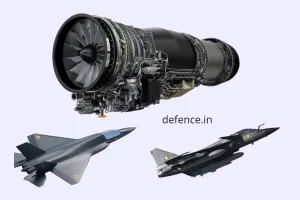- Views: 2K
- Replies: 20
Reports suggesting a potential transfer of Chinese nuclear-powered ballistic missile submarines (SSBNs) to Pakistan have raised alarm in India, prompting expectations of a significant shift in New Delhi's strategic posture in South Asia.
The acquisition of SSBNs by Pakistan would mark a substantial escalation in the regional arms dynamic, significantly bolstering Pakistan's naval and nuclear capabilities while posing new security challenges for India.
Analysts suggest that such a move by China would have profound implications for the balance of power in the Indian Ocean region. SSBNs are capable of launching nuclear-armed ballistic missiles from underwater, providing a credible second-strike capability and significantly enhancing a nation's nuclear deterrent. This is especially important as currently Pakistan's nuclear arsenal is primarily land-based.
In response to this potential threat, India is anticipated to adopt a multi-faceted strategy, encompassing diplomatic, military, and doctrinal dimensions.
Diplomatic Initiatives
On the diplomatic front, India is expected to intensify efforts on international platforms. This could involve leveraging forums such as the United Nations and the Quadrilateral Security Dialogue (Quad) – a strategic partnership comprising the United States, Japan, Australia, and India – to raise concerns about the destabilizing effects of such a transfer.The Quad, formed in 2007, has increasingly focused on maritime security and freedom of navigation in the Indo-Pacific region, and the introduction of Chinese-origin SSBNs into the Indian Ocean would likely be viewed as a significant challenge to these objectives.
While bilateral relations between India and Pakistan remain strained, characterized by historical tensions and ongoing disputes, particularly over Kashmir, experts suggest that India might explore Track II diplomacy. This informal channel of communication, involving non-governmental actors like academics and former officials, could facilitate dialogue and potentially lead to confidence-building measures aimed at mitigating immediate threat escalation.
Military Modernization and Development
A key element of India's response will undoubtedly be the accelerated development and induction of its own submarine fleet. This includes prioritizing the indigenous Arihant-class SSBN program and the nuclear-powered attack submarine (SSN) development under Project 75.The Arihant-class program is critical for India's own nuclear triad, allowing it to project nuclear power from the sea. Project 75 is in place to build six conventional attack submarines with France. An additional initiative, named Project 75 Alpha, which later changed into Project 75 India is in place to build Six advanced SSNs locally.
Furthermore, the Indian Navy is expected to intensify its focus on Anti-Submarine Warfare (ASW) capabilities. This includes the deployment of advanced ASW frigates, helicopters, and surveillance drones. Increased exercises and training focused on ASW operations are also anticipated. Acquisition of advanced ASW assets like the P-8I Poseidon maritime patrol aircraft from the US demonstrates India's ongoing efforts to bolster its ASW capabilities.
Potential Doctrinal Review
The introduction of a Pakistani sea-based nuclear deterrent could compel India to revisit its nuclear doctrine. India's current doctrine, established in 2003, is centered around the principle of "No First Use" (NFU) of nuclear weapons, coupled with a commitment to "massive retaliation" in the event of a nuclear attack.However, the enhanced survivability offered by SSBNs to Pakistan's nuclear arsenal could challenge the credibility of India's retaliatory threat, potentially necessitating adjustments to ensure deterrence remains effective.
The potential transfer of Chinese SSBNs to Pakistan represents a significant development with far-reaching implications for regional stability. India's response, encompassing diplomatic engagement, military modernization, and a potential doctrinal review, underscores the seriousness with which it views this emerging challenge.
The coming months are likely to witness increased activity on these fronts as India seeks to maintain a credible strategic posture in an increasingly complex security environment.


